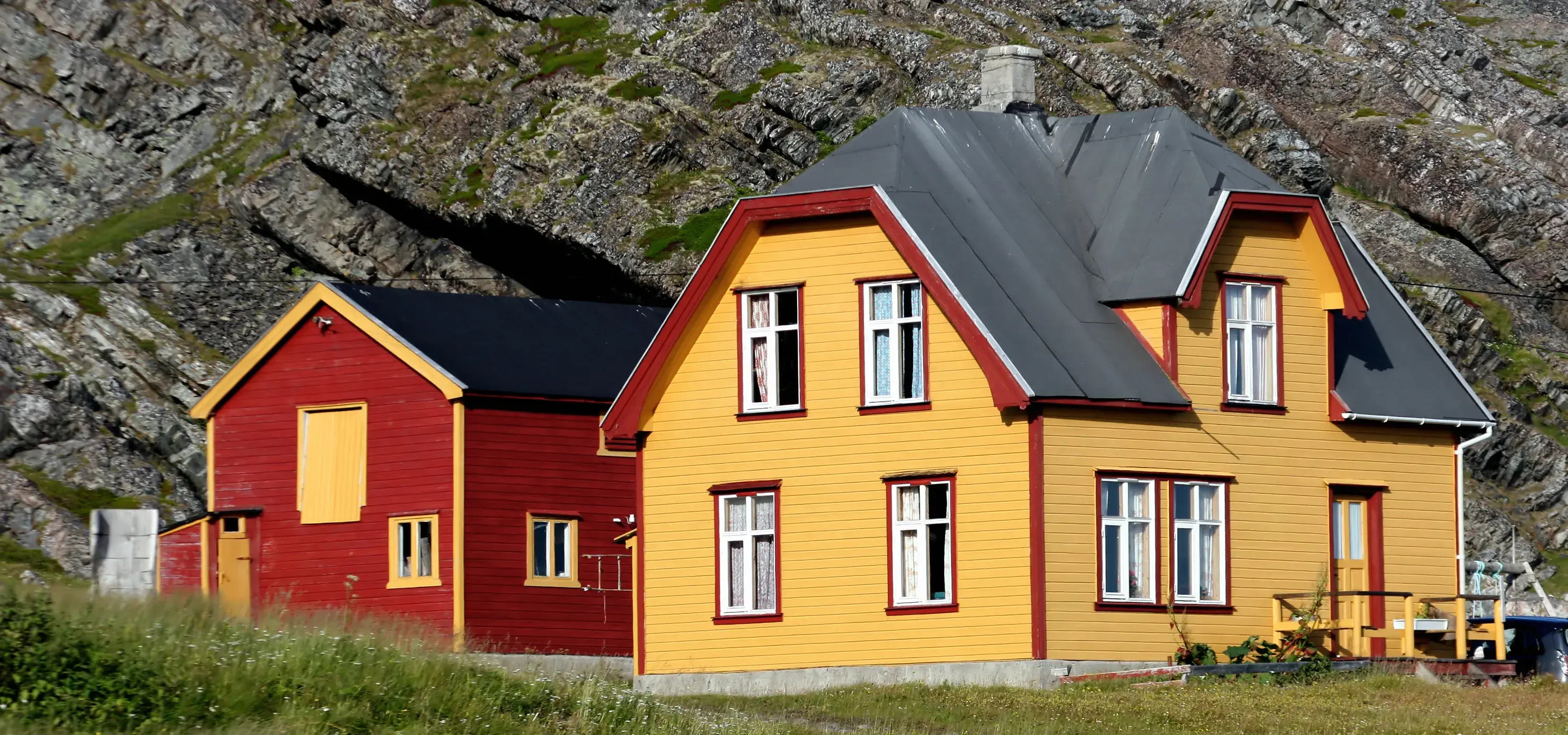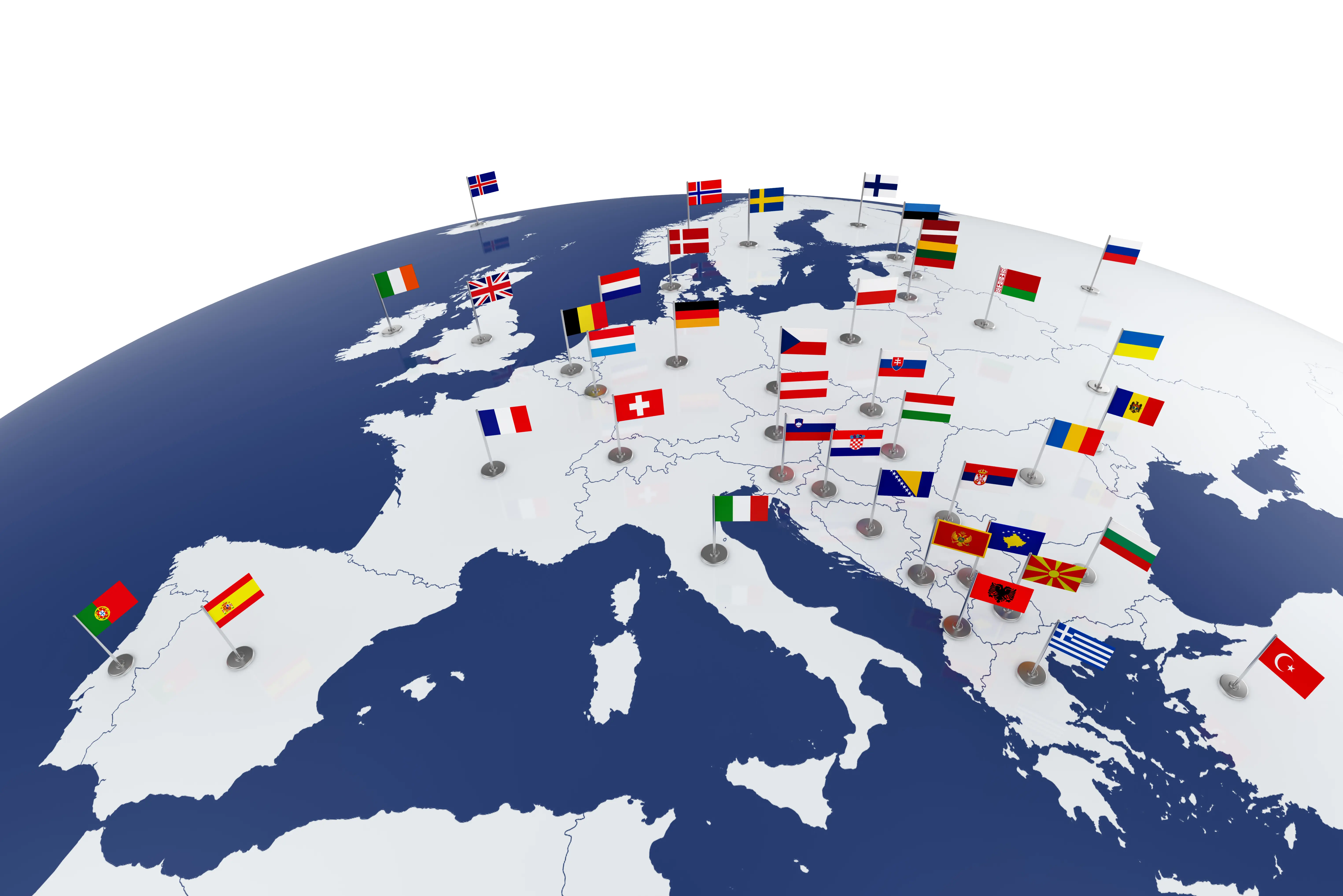Crossing borders, broadening horizons
Student exchanges, European Culture Days, work shadowing - the ZHAW’s contact with European universities is diverse and inspiring. Students as well as lecturers can benefit from this.

Impact No. 32 – March 2016
The pictures in Meret Aschwanden’s clinical placement report show colourful wooden houses, deep blue lakes and thick coniferous forests - and they make you want to visit Norway. But even though the nursing student had a large amount of free time to explore Scandinavian nature last autumn, this was not the main reason why she participated in the exchange.
“I wanted to broaden my professional horizons,” says Aschwanden, who is 24 years old and currently in her seventh semester. She spent three months in Trondheim, where she gained an insight into home-care services and the palliative care unit. She also attended lectures, together with Norwegian nursing students, for three weeks. She received credits for her time in Norway at her home university, the ZHAW.
"Intercultural competence is extremely important for healthcare professionals.”
Andrea Tamas, School of Health Professions
Spending an impressive amount of time with patients
Aschwanden was especially impressed by the amount of time the home-care specialists in Norway have for their patients. Because home care is a free service, the specialists often visited people who were not in need of care but were simply feeling lonely. In this way, elderly people can live at home longer,” says Aschwanden. She also liked the atmosphere at the palliative care unit. The carers would, for instance, cook with the patients, which contributed to a homely atmosphere. She also mentions the modern medicine cabinet, with its special safety system. It was located in a separate room which you could only access with a special card. “In this way, you can focus better, and fewer mistakes happen,” says the prospective nurse.
The School of Health Professions is in close contact with partner institutions in European and non-European countries. Students have the opportunity to attend conferences together with their lecturers on a regular basis. “Intercultural competence is extremely important for healthcare professionals,” says Andrea Tamas, Head of International Relations at the School of Health Professions. The exchange with Nordic and Anglo-Saxon countries is especially valuable because the job profiles in the healthcare sector are much further advanced than here in Switzerland, she stresses.
Work shadowing
To gain job experience, a number of MSc students attend a work shadowing programme at least once. During this one-week programme, they look over the shoulder of an Advanced Practice Nurse (APN). APNs are healthcare professionals with academic training and extended competence. In the medium-term, it is planned to establish these job profiles in Switzerland as well.
At the School of Health Professions, the Summer and Winter Schools are also very popular. Around 100 students from 11 countries came to Winterthur in January 2016. Together with prospective nurses, midwives, physiotherapists and occupational therapists of the ZHAW, they underwent training to help them interact with people from different sociocultural backgrounds. “The intercultural context was particularly relevant to this topic,” says Tamas. The students used role play, and social aspects were also emphasised.
Setback after vote

The ZHAW maintains relations with foreign universities across the globe. According to the university strategy 2015-2025, the focus is on Europe. Vera Narodnitzkaia, Head of the International Affairs Unit at the ZHAW, reports that two years ago, the student exchange programme suffered a setback. Following the nationwide vote in February 2014 to reintroduce quotas on immigrants from the European Union, Switzerland’s status in the Erasmus+ programme was downgraded from “member country” to “partner country”. "Back then, we had to discuss new terms with our partner universities as quickly as possible," Narodnitzkaia recalls. Fortunately, she adds, only a few universities backed out.
“The preparations require considerable effort. But most students come back happy and with better job opportunities."
Vera Narodnitzkaia, Head of the International Affairs Unit, ZHAW
Every year, about 250 ZHAW students spend a semester abroad in a European country, while nearly 200 foreign students come to the ZHAW. Overall, most students go to Germany and Great Britain. Students at the School of Management and Law prefer Great Britain or France, whereas many at the Institute of Translation and Interpreting like to benefit from a semester in Spain. Only students who achieve a certain average grade at the ZHAW are able to study at a partner university. Narodnitzkaia says that the application process and preparations require considerable effort. "But most students come back happy and with better job opportunities," she adds.
The ZHAW works closely with the FH Campus Wien and the Munich University of Applied Sciences. These three universities formed the International Network of Universities of Applied Sciences (INUAS) in 2011; their aim was to make it possible for their members to study, teach, work and do research cross-institutionally. The common focus is on the future of urban environments. As a part of the upcoming Smart Cities project, representatives of various academic fields will design a completely new district in Munich. In addition to architects and engineers, psychologists and sociologists are also involved.
European Culture Days
In another network, the International University of Lake Constance (IBH), 30 universities from Germany, Austria, Liechtenstein and Switzerland have united to jointly conduct research and organise events. Each year, the ZHAW School of Life Sciences and Facility Management offers its students in their second semester a great opportunity - they can travel to a close foreign city for three “European Culture Days”. For these three days, about 350 students descend on a city and, in interdisciplinary groups, they examine local cultural and social circumstances. In the past, they have explored the university city of Heidelberg (Germany) and the green areas of Strasbourg (France). In May 2016, Turin was their destination; here students discussed, among other things, the former monarchy and the city’s industrial past - as well as slow food!
Ideas from the Netherlands for the School of Social Work
The ZHAW School of Social Work also engages in a lively exchange with professional colleagues in Europe. There has been a partnership for several years with the Hanze University of Applied Science in the Dutch city of Groningen. In spring 2015, 14 students from this university came to Zurich to examine how Switzerland deals with delinquent teenagers. Students and lecturers from the ZHAW explained the Swiss system to them and took them to institutions such as the Limmattal/Albis Youth Advocacy Centre and the Massnahmenzentrum Uitikon, a facility for male offenders between 15 and 25.
Three months later, a return visit to the Netherlands took place, which followed a similar pattern. One participant, Monja Hajrizaj, was particularly impressed by a programme with an unorthodox approach – similar to a boot camp – that addressed young people facing problems such as unemployment, drug addiction, debt or psychological problems.
"This exchange has given me new ideas,” says Monja Hajrizaj, who has meanwhile gained her degree in Social Work. "It is always good to question and develop your own structures."
Author: Andrea Söldi
Studying abroad – with support
Erasmus +, the EU programme for education, training, youth and sport, offers students the opportunity to study for one or two semesters at a foreign university, while still matriculated at their home university. After acceptance of the referendum aimed at stopping mass immigration in 2014, Switzerland was excluded from full participation in the programme. The Swiss Federal Council consequently worked out a temporary solution: the Swiss European Mobility Programme (SEMP). This allows students to study at a partner university abroad as before and receive ECTS points, as well financial support, which now comes directly from the Swiss Confederation, instead of from the EU.
In addition, various programmes are designed for students in specific subject areas. The International Association for the Exchange of Students for Technical Experience (IAESTE), for example, arranges internships for natural scientists and engineers in companies all over the world. The Association Internationale des Étudiants en Sciences Économiques et Commerciales (AIESEC) is a youth-run organisation which enables students to make contacts in companies and NPOs in the marketing, business and IT sectors. As well as internships, voluntary work is also possible.
The Swiss Confederation also maintains a network of science and technology advisers in 20 countries. They support the Swiss universities at exhibitions and in publicising projects. Exchange students and employees benefit from events and networks.